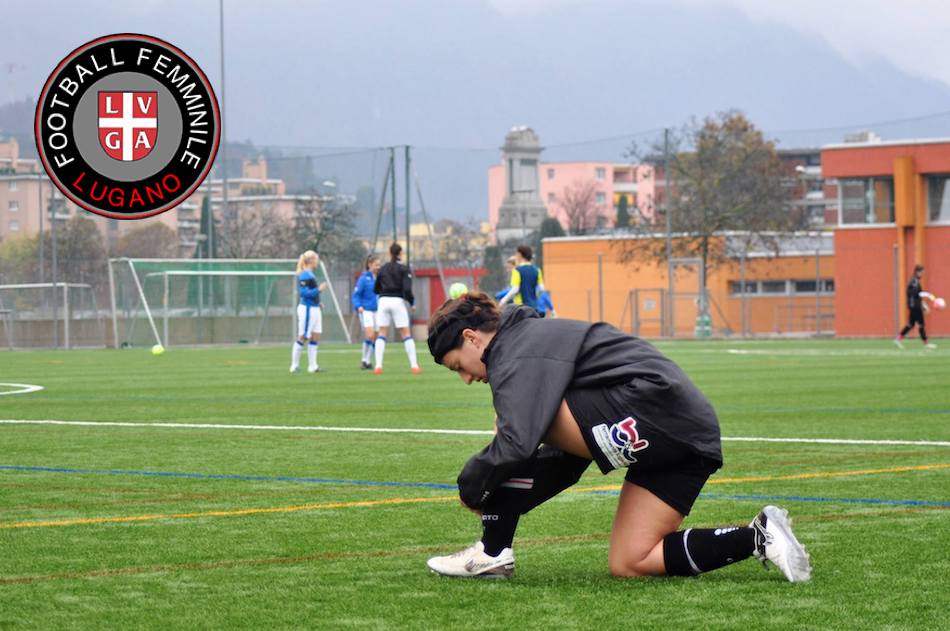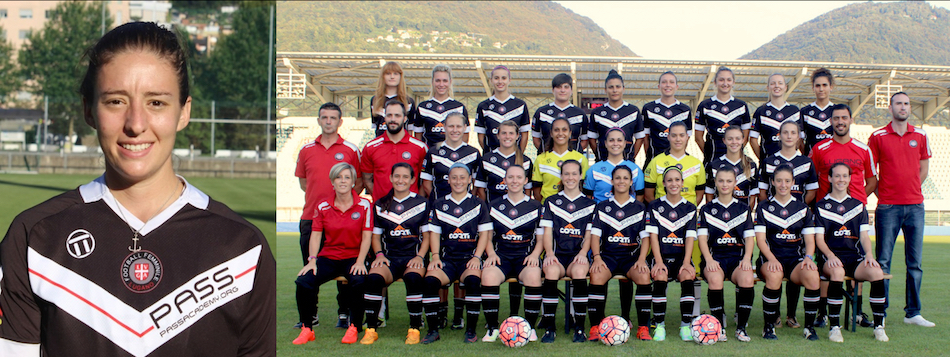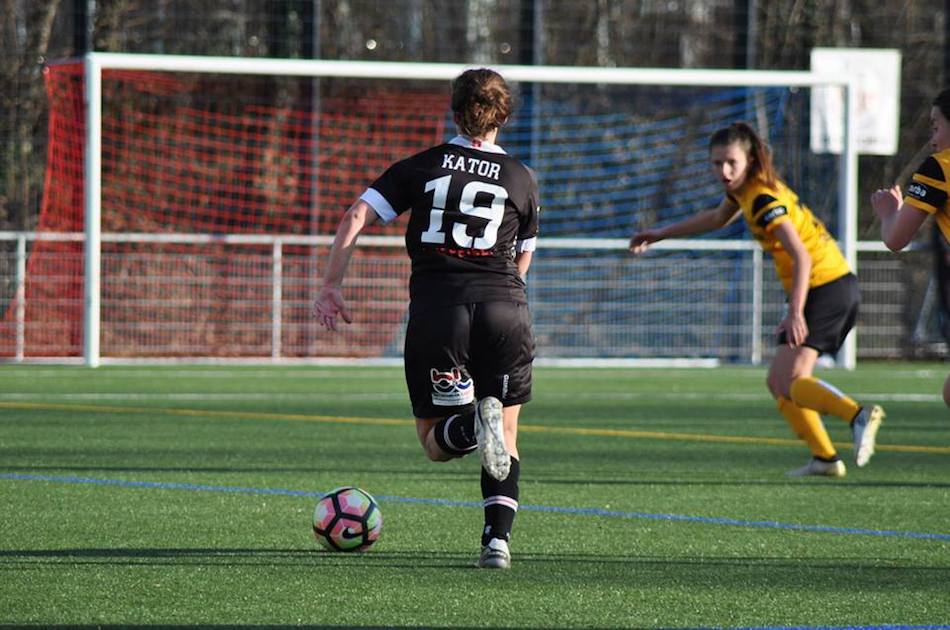Total Futbol Alum Jamie Kator Goes Pro
March 19, 2017

Jamie Kator (kneeling, above) made the leap from college soccer to the professional game, a transition that less than 2% of collegiate athletes make successfully. A four-time selection for the Southeastern Conference (SEC) Academic Honor Roll when she attended Vanderbilt University (she graduated in May of 2016), Jamie's long-term game plan includes medical school.
"My teammates call me 'The Tractor' on the field."
Total Futbol alum Jamie Kator (originally part of the Herndon Firecats team that graduated from high school in 2013) has made the jump to play professional soccer in Switzerland after four years in the midfield with the Vanderbilt University Commodores. Jamie, who plans to pursue a medical degree in graduate school, is taking time off from academics to pursue her dream of playing professional soccer—and her journey has led her to Lugano, Switzerland, and the Football Femminile Lugano 1976 (fflugano.com).
FF Lugano competes in the Swiss first division of the professional Nationaliga A and Jamie has been playing as a defensive center midfielder with occasional duty as a center back. The season is split in two: the first half from July to November, the second from March through playoffs in early June.
The primary language of FF Lugano players and coaches is Italian and that has created a "really fun and challenging language environment", according to Jamie. She speaks French when her Italian does not suffice (but she's brushing up on Italian). "There's never a dull conversation, especially when they start alternating between three languages," she adds.

Jamie Kator (#19) is shown above in a team huddle (far left), warming up (center) and lunging for the ball (far right) in a game.

Lugano is a city in the Italian-speaking region of Southern Switzerland that borders beautiful Lake Lugano and is encircled by a mountain range.
We asked Jamie about her current soccer adventure and how it relates to her past:
Is the style of soccer different in Switzerland than in the U.S.?
There is most definitely a difference. It is less physically focused and more tactical. It is still physical, just not as physical as the SEC (the collegiate conference of Vanderbilt). We spend a lot of time going over pattern play and shape. Specifically, the Italian style that we play is more counter attack based than I was used to in the U.S.
How did what you learned with the Firecats prepare you for Vanderbilt and for professional soccer?
The Firecats prepared me for Vanderbilt by improving my speed of play and movement, especially as a player in a triangle midfield. Vanderbilt built on that by honing my defensive skills and making me responsible for stopping counter attacks and starting our own at defensive mid. Here in Switzerland, I use the two to anchor our midfield. It doesn't sound flattering, but my teammates call me the tractor on the field. It's my job to stop forwards and midfielders running at full speed with the ball, and play our forwards in behind as fast as possible.
Do you like living in a foreign country?
I love it. It is difficult at times, but most of the time it's amazing because it is Switzerland. Plus, I'm in the Italian part, so the food is great (fondue and raclette up in the German part get old really fast). Switzerland is beautiful and full of fun outdoor activities. And the trains are amazing. The hardest part the Americans on the team have is missing our favorite American or ethnic restaurants back home.

Jamie Kator in her gameday kit (left) and with the players and coaches of Football Femminile Lugano 1976 (front row, second from right).
Why did you choose to play professionally after college?
I never stopped loving soccer. A lot of teammates and friends begin to lose their love for the game in college. It's more stressful, it takes away from friends and studies, and it is exhausting. But it was always fun for me, and still is. It enhanced my college experience, not subtracted from it. So when I got into medical school, I decided to defer my admission. Before I become only a student, I am rewarding my hard work as a student athlete by finally taking the stress away, and just having fun while I still can.
What makes for mental toughness at different levels of the game?
In youth soccer, mental toughness is getting over immaturities, learning to focus, and learning to sacrifice (time, friends, dances, etc). In college, mental toughness is being required to do all those things. Professional soccer is the most difficult because it involves making the conscious decision to willingly do those things every day. As the level increases, so do the mental demands.
What is your favorite memory from when you were a young player?
It's hard to pick a favorite memory, so I'll share a fun one. Nadir (Nadir Moumen, Head Coach of the Firecats at that time) was driving Gen Grundy (another former Firecats players) and I to a game somewhere in the middle of nowhere in Pennsylvania or New Jersey. Searching for food an hour after starvation had set in, we passed by an Applebee's, which drew a negative response from everyone in the car, including Nadir. Nadir was poking fun, when Gen and I joked that he should watch his tongue, because he may end up meeting his future girlfriend in an Applebee's one day. We did not realize then that we were psychic. Now we know, and we do palm readings by request.



